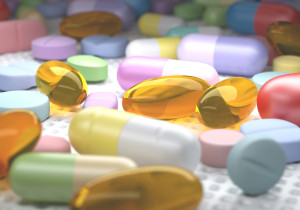
Contributor: Crystal Karges, MS, RDN, IBCLC Special Projects Coordinator at Eating Disorder Hope/Addiction Hope
Countless individuals use prescriptions drugs across the world for various reasons. Some of the most common type of prescription medications that are prescribed by physicians include:
- Painkillers
- Tranquilizers
- Sedation type medications
- Stimulants
- Psychotropic medications
- Anti-depressants
- Anti-anxiety medications
Many individuals, in fact, take more than one prescription medication on a daily basis, and the real danger lies in the number of people who use prescription drugs for non-medical purposes.
52 Million Abused Prescription Drugs
According to the National Institute on Drug Abuse, 52 million people in the United States over the age of 12 have used prescription drugs for non-medical purposes in their lifetime [1]. Some of the most commonly abused prescription medications include painkillers, tranquilizers, and stimulant drugs [2].
Combining this issue with the prevalence of alcohol use that is also observed in our nation can result in a perfect storm that ultimately can lead to destructive consequences for the user.
Even if only small amounts of alcohol are ingested, this can intensify the effects of a prescription medication, inducing symptoms such as drowsiness, light-headedness, and sleepiness, which can significantly interfere with a person’s ability to make cognitive and rational decisions. Being under the influence of alcohol that is mixed with prescription medications can also lead to dangerous decision making, which can increase risk of violence, sexual abuse, motor vehicle accidents and more.
Mixing Alcohol and Prescription Meds
Mixing alcohol with several prescription medications can make certain drugs more harmful or toxic to the body, increasing risk of severe physical complications such as:
- Cardiovascular problems
- Liver damage
- Gastrointestinal distress
- Internal bleeding
- Breathing complications
 In some instances, using alcohol with prescription medications may render the medication useless as it decreases effectiveness, but in more situations, alcohol will intensify the side effects of medications taken.
In some instances, using alcohol with prescription medications may render the medication useless as it decreases effectiveness, but in more situations, alcohol will intensify the side effects of medications taken.
If you are taking any type of prescription medication, be sure to careful understand the risks involved if alcohol is also used. Talk with you doctor about the safety involved with prescription medications you may be taking, particularly if you are planning on using alcohol at any point. Keeping your health and safety a priority can be the difference between life and death in many situations.
Community Discussion – Share your thoughts here!
What do you think about the prevalence of prescription drug misuse and alcohol abuse? What are some effective strategies that may be helpful in preventing this dangerous combination among individuals?
References:
- NSDUH: http://www.samhsa.gov/data/NSDUH/2k11Results/NSDUHresults2011.htm
- University of Texas: https://www.utexas.edu/research/cswr/gcattc/documents/PrescriptionTrends_Web.pdf (PDF, 267KB)
The opinions and views of our guest contributors are shared to provide a broad perspective of addictions and co-occurring disorders. These are not necessarily the views of Addiction Hope, but an effort to offer a discussion of various issues by different concerned individuals. We at Addiction Hope understand that addictions result from a combination of environmental and genetic factors. If you or a loved one are suffering from an addiction, please know that there is hope for you, and seek immediate professional help.
Last Updated & Reviewed By: Jacquelyn Ekern, MS, LPC on October 29th, 2015
Published on AddictionHope.com
